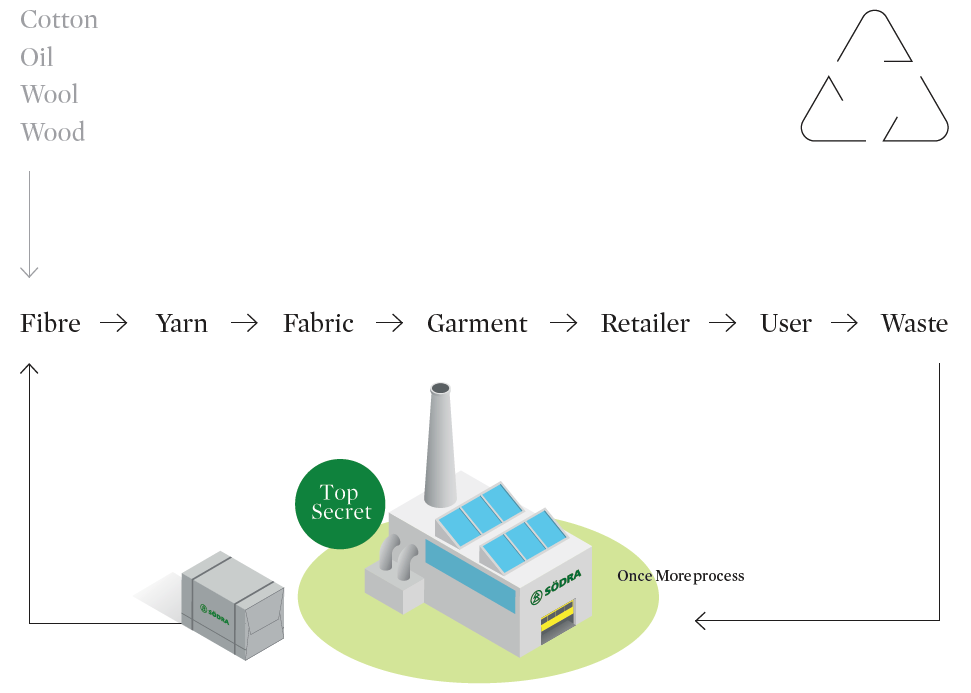In order to handle the growing volume of waste textile materials, recycling processes must begin significantly scaling up. Lenzing AG (Lenzing, Austria; www.lenzing.com) and Södra (Växjö, Sweden; www.sodra.com) are joining forces to scale up the OnceMore textile-recycling process, which is said to be the world’s first industrial-scale recycling technology for textiles with blended fibers, which are typically seen as difficult to efficiently recycle.

Source: Södra
“OnceMore is able to simultaneously degrade polyester while retaining the cotton or cellulosic part of the material. Today, the process accepts textiles containing up to 50% polyester. Since polyester-cotton is one of the most abundant textile blends, we can process many types of post-consumer waste, including bedsheets, napkins, towels and garments,” explains Johannes Bogren, vice president of Södra’s Cell Bioproducts division. Furthermore, OnceMore is capable of large-scale production because it is able to use existing pulp-mill equipment says Bogren. The process blends waste textiles with wood cellulose to create a dissolving high-alpha-cellulose pulp product that can be processed into new textile products. The OnceMore technology has successfully processed 25 tons of textile waste in one day, and the company is now working to replicate that performance and begin using OnceMore pulp as a raw material for the production of Lenzing’s Tencel x Refibra specialty fibers.
Lenzing and Södra’s partnership aims to increase the share of recycled content in OnceMore pulp from 20% up to 50%, significantly increasing the production capacity. “For our target of recycling 25,000 tons of textiles by 2025, we will need a working, sorting and collecting system for discarded textiles. People need to stop throwing their textile waste in the garbage. Technology-wise, we need to expand our specification for what we can accept — we will need ways to handle zippers, prints, various trims and assorted fibers like wool, elastane and nylon,” adds Bogren.